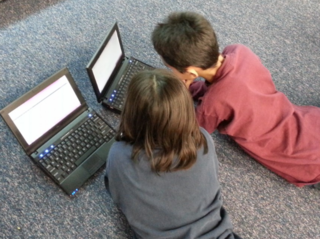Education
4 Ways to Become a Better Consumer of Online Information
Learning to spot misinformation on the internet is an essential modern skill.
Posted April 14, 2021 Reviewed by Chloe Williams
Key points
- Misinformation and disinformation exist alongside reliable information online, but few have been how to distinguish between them.
- Strategies for becoming a better consumer of online information include slowing down and being aware that what we find may not be true.
- People can also learn to tell the difference between objective news and subjective opinion, and become aware of confirmation bias.

Some 30 years into the internet era, we now take it for granted, with an entire generation that never had to wait for the daily news to be delivered each morning to their doorstep and never had to go to the local library to check out books for a school assignment. To be sure, we now live in a world where we enjoy real-time access to information from all over the world at the touch of a button in a way we've never had before in human history.
But the dark side to the internet is that misinformation and disinformation exist right alongside reliable information and few of us have ever been taught how to distinguish between the two. And based on our "click" preferences, the internet force-feeds us what it thinks we want to see so that we can have entirely different views of the world than our next-door neighbors with different ideological beliefs. As a result, consuming online information runs a very real risk of reinforcing subjective reality rather than teaching us novel information, making us increasingly resistant to objective facts and increasingly unable to engage in meaningful dialogue with those that hold opposing viewpoints.
I was recently asked to contribute tips on how to teach children to identify and deal with misinformation online. But research has shown that older people may actually be more likely to share misinformation than kids, so people of all ages would benefit from this kind of education. Here are four tips to make us all better consumers of online information:
1. Be Skeptical
It can be very hard to tell the difference between reliable information and misinformation on the internet. When searching for information online, we should always be aware that what we find might be wrong.
That’s especially true on social media where “fake news” travels faster and farther than accurate information. Verify information by looking to see if it’s been reported by multiple sources. Check first, then share—resist the urge to immediately share something new and provocative before you’ve spent some time fact-checking it.
2. Slow Down
We often use the internet to find quick answers, but not all questions can be answered quickly or easily. Many “hot button” issues are complicated, with a variety of opposing opinions and truth that may or may not lie in the middle.
Becoming a good consumer of online information requires that we slow down and read the actual article beneath the catchy headline. Once you’ve done that, seek out other articles on the same topic. We can be more confident that information that’s shared across different articles is factual. Conversely, areas of discrepancy can help us identify potential misinformation or matters of opinion, as opposed to established facts.
3. Separate Facts from Opinion
Understand that misinformation and the deliberate spread of disinformation is big business—there are many people out there trying to get our attention and sway our opinion for their own personal gain.
Learn how to recognize the difference between objective news and subjective opinion and learn how to identify media sources that are more or less reliable or that have a “left” or “right” political bias. Read reliable sources of information across the political spectrum to gain perspective on a subject.
4. Resist Confirmation Bias
We tend to search for information based on “confirmation bias”—clicking on and sharing things that support what we already believe and rejecting whatever challenges it. The internet is also designed to show us what it thinks we want to see, so that when we look for information online, we’re subjected to a kind of “confirmation bias on steroids.”
Maintaining a skeptical attitude makes us better consumers of online information, but not if we’re only skeptical about things we don’t like or disagree with. Healthy skepticism isn’t the same as denialism—don’t reject information or label it “fake news” because it goes against what you believe.
Read more about the psychology of misinformation:


